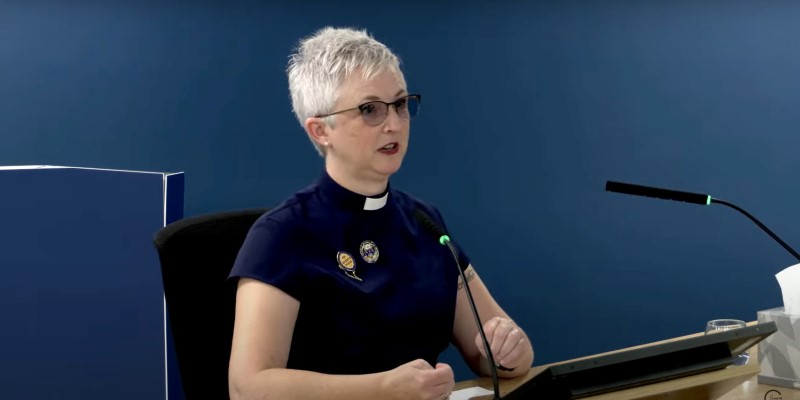
Those working in the care sector during the pandemic suffered moral distress and issues with severe short staffing impacting care, the COVID inquiry has heard.
Reverend Charlotte Hudd, a registered nurse who worked at a care home during the pandemic, appeared at the inquiry to answer questions about her witness statement and experience in this period.
Charlotte was forced to indefinitely move into the care home where she worked, and was the “last nurse standing” after the five other nurses employed at the home tested positive for the disease. She was left to care for around 20 residents with complex needs on her own for 10 days. “I could feel fear rising. Every time I readjusted the rota, it just disintegrated, and there were less and less [staff],” she told the inquiry. “I came to the realisation that there were no nurses left… it was just me.”
She also told the inquiry about writing her final wishes and a "do not attempt cardiopulmonary resuscitation" note on a card at 3am, in case she became unwell or incapacitated, as there was no one there to help.
The registered nurse and ordained minister now lives with post traumatic stress disorder (PTSD) and long COVID following her experiences, during which she would work around the clock to provide care. The inquiry heard she had to leave her job in June 2021 due to the impact the pandemic was having on her health and wellbeing.
Charlotte spoke about the short staffing and moral distress in her time at the care home. She raised a safeguarding alert on herself. “There was a risk of harm by omission, because there weren’t enough of us to ensure timely continence care, repositioning, nutrition, all the medication, everything that contributes to good quality care. I was one person with so many things to do, I could make a medication error, I had to declare that neglect is in progress through circumstance, and that was really difficult.”
She also described how personal protective equipment (PPE) was in such short supply that she and her colleagues had to make their own gowns from bedsheets and store their limited number of masks in freezer bags throughout their shifts so that they could be reused. Charlotte said: “We had to make do with what we had.”
Module 6 of the COVID-19 Inquiry opened in December 2023, with public hearings taking place from Monday 30 June until Thursday 31 July 2025. The RCN is presenting evidence as a core participant, as the inquiry examines the impact of the pandemic on the publicly and privately funded adult social care sector in England, Scotland, Wales and Northern Ireland. The module will investigate the consequences of government decision making on those living and working in the care sector during the pandemic.
RCN Barrister Gerry Boyle KC made his opening remarks on Monday, commenting that “nursing should no longer be viewed as a cost burden, rather a profession, a workforce to be invested in and valued for the benefit of us all”. He spoke about workplace capacity and staff shortages, the disparity of treatment between social care and the NHS, and the impact on nursing staff.
On the impact of the pandemic, he said: “Many lost their lives just by turning up for work. Many lost their careers through the impact of the pandemic on their mental health. Many continue to suffer the effects of long COVID, which has blighted their ability to work and perform the public service which they so cherish. These consequences and the inevitable impact on the safety of those they care for should never happen again.”
We’ll be presenting further evidence on behalf of our members in the coming weeks of the UK COVID-19 Inquiry. Find out more about our involvement.





